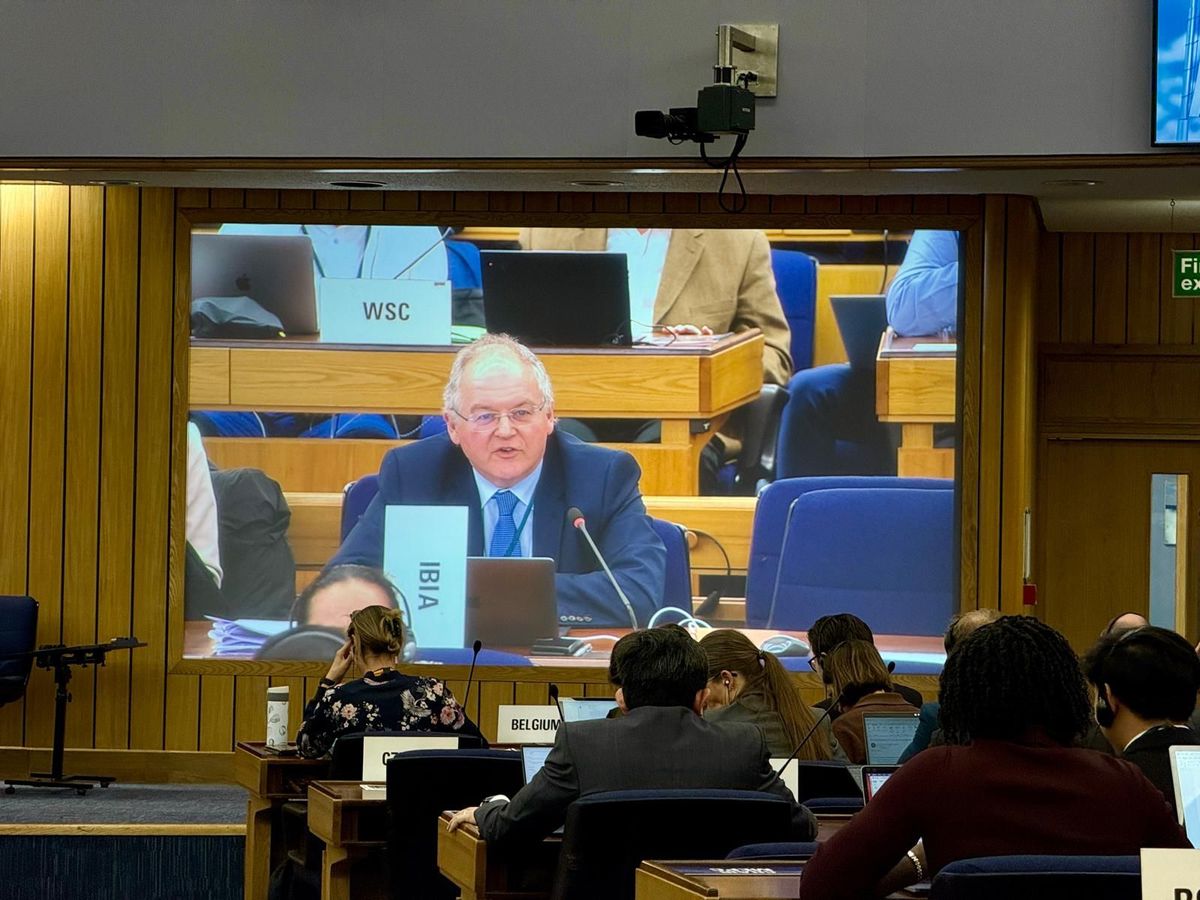IMO vote creates certainty and sends clear demand signal - IBIA
The IMO’s approval of a new global fuel standard may have fallen short of consensus, but sends a clear demand signal to fuel producers, says Dr Edmund Hughes, the International Bunker Industry Association (IBIA) representative to the IMO.
 IMAGE: Edmund Hughes representing IBIA at the Intersessional Working Group on Reduction of GHG Emissions from Ships in February. LinkedIn
IMAGE: Edmund Hughes representing IBIA at the Intersessional Working Group on Reduction of GHG Emissions from Ships in February. LinkedIn
In a follow-up interview after the vote at MEPC 83, Hughes described the outcome to ENGINE as “momentous,” despite being the product of compromise between opposing blocs.
“Some felt it was not ambitious enough, others thought it was too ambitious,” he said.
“And then you had the middle of the road, which has prevailed because that's what has now been passed through.”
The measure introduces a two-tier greenhouse gas (GHG) fuel intensity standard, requiring ships to reduce the well-to-wake GHG intensity of the energy they use from 2028 through 2035. The “base target” ramps up from a 4% cut in 2028 to 30% by 2035. A more ambitious “direct compliance target” starts at 17% and tightens to 43% over the same period.
Towards regulatory certainty
For Hughes, the significance lies not in the perfection of the deal, but in its function.
“We have called for certainty before this meeting because we need that certainty through mandatory requirements. And this framework, now that it's been approved at this stage, it's over another hurdle.”
The approved framework will need to be adopted in October, and if it does it will “send a very good signal to the fuel producers that the demand will be coming for their fuels,” Hughes says.
While many member states and interest organisations had hoped for a global GHG levy, Hughes said the framework offers a crucial starting point.
“If there is no framework, there is no ambition to scale up. You need to have something, and then you can correct,” he says.
Looking beyond 2035, Hughes notes that the framework includes a 65% base reduction target for 2040, though that goal sits outside the tabled schedule and remains subject to future negotiations.
“This is the first time shipping will be regulated on the lifecycle emissions of its fuels,” Hughes said. “It’s not the final step, but it’s a foundational one. Without it, the market wouldn’t move. With it, we now have something to build on.”
Multilateral breakthrough amid geopolitical tensions
The IMO vote highlights just how politically charged decarbonising shipping has become - and why the IMO’s structure was crucial in getting the fuel standard over the line.
“It partly reflects the nature of the subject, which is highly geopolitically sensitive. And really, we are dealing with matters which are just beyond shipping as much as shipping itself.”
While the week saw sharp divisions between blocs of member states, Hughes pointed to the IMO’s ability to pass decisions by majority as key.
“The thing about the IMO, its rules allow for majorities to take forward decisions rather than unanimity, which is the approach that's used in many other UN bodies,” he said.
“And that frankly, in this instance, has been a saving grace, because if we would have to get unanimity, then we would probably never have gone forward.”
He added that multilateralism at IMO is not always smooth, but it remains effective: “We have to respect that this is multilateralism.”
By Erik Hoffmann
Please get in touch with comments or additional info to news@engine.online





